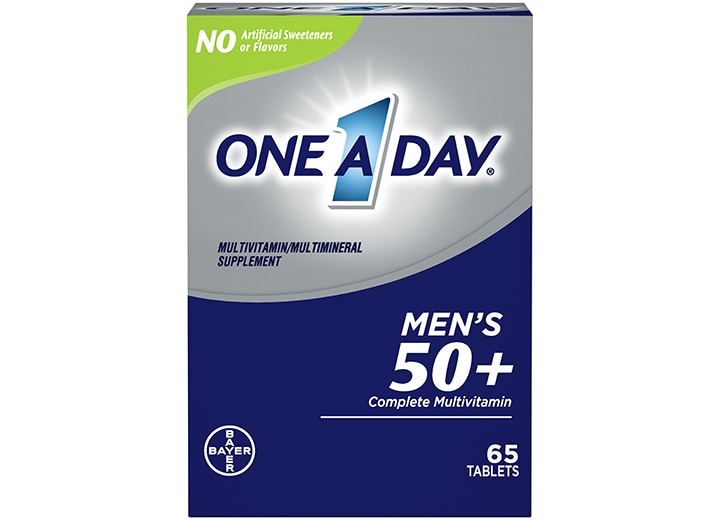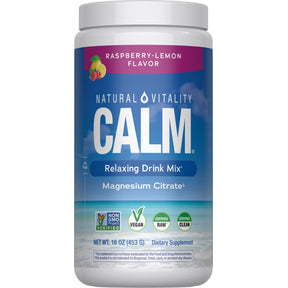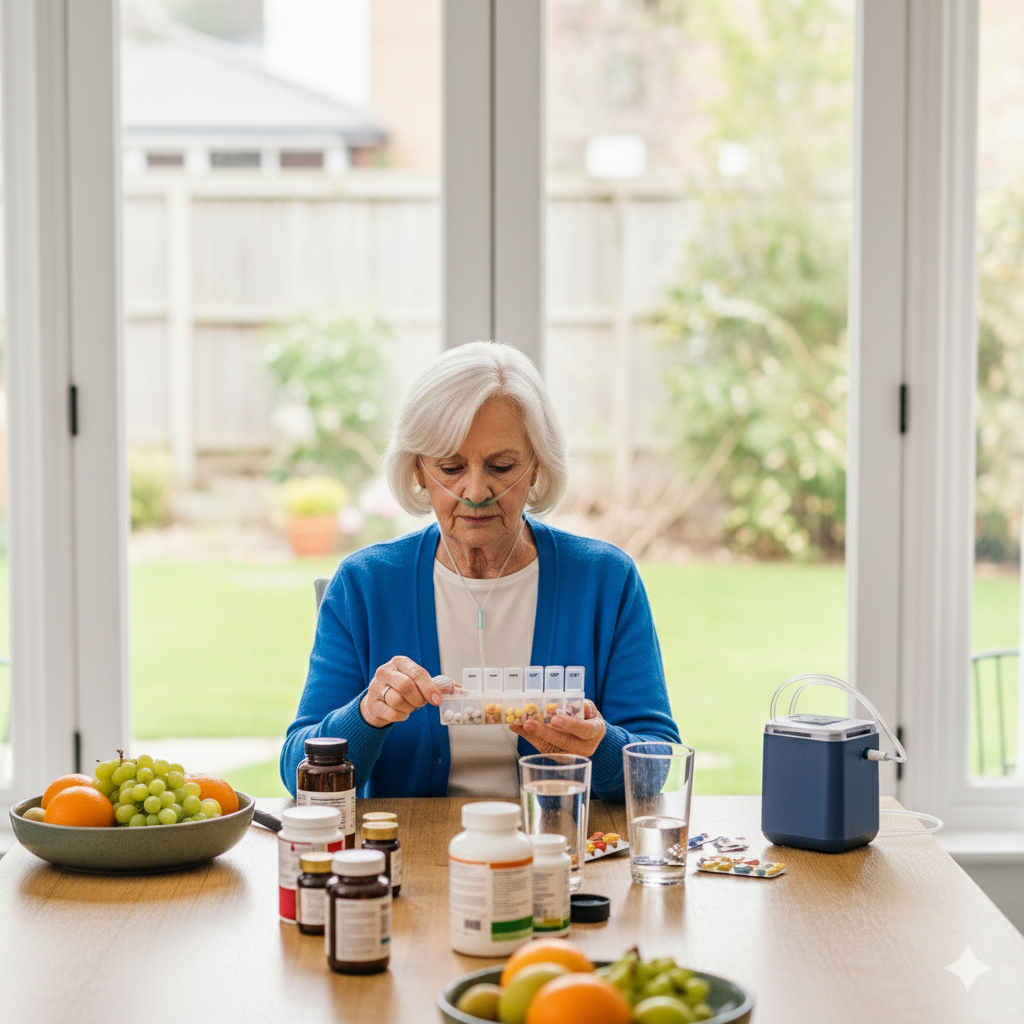Fill nutritional gaps with this comprehensive multivitamin designed for adults 50+. Includes immune-supporting vitamins C, D, and zinc plus B-complex for energy. Formulated for easy absorption by mature adults.
COPD Essentials
Take Control of Your COPD - Discover Tools Used by 50,000+ Patients. From daily oxygen monitoring to sleep-saving air purifiers, find the exact products your pulmonologist wishes you knew about. Every recommendation tested by real COPD patients.

Vitamin D for COPD
Boost immune function and bone health with high-potency vitamin D3. Many COPD patients have low vitamin D levels, which can increase infection risk. These easy-to-swallow softgels provide optimal absorption.
☀️ The Sunshine Vitamin That Could Save Your Lungs - 80% of COPD Patients Are Dangerously Deficient
When you can barely catch your breath, the last thing you're thinking about is stepping outside for sunlight. But this creates a dangerous cycle: COPD keeps you indoors → vitamin D levels plummet → immune system weakens → respiratory infections increase → breathing gets worse.
Breaking this cycle might be as simple as one daily supplement.
"My pulmonologist was shocked when my vitamin D level came back at 12. After six months of supplementation, it's up to 45 and I haven't had a single chest infection." - Maria K., COPD Patient
🔬 The Hidden Connection Between Vitamin D and COPD Survival
Here's what most people don't realize: vitamin D isn't just about bones. Your lungs are packed with vitamin D receptors, and when levels drop below 30 ng/mL, your respiratory system starts falling apart.
The deficiency epidemic among COPD patients is staggering:
- 60-80% have insufficient levels (below 30 ng/mL)
- 40% are severely deficient (below 20 ng/mL)
- Deficient patients have 2x more exacerbations
- Hospital readmission rates are 50% higher
Why are COPD patients so deficient? Limited sun exposure, reduced outdoor activity, malabsorption from steroid medications, and age-related vitamin D production decline all conspire against respiratory health.
🌟 Doctor's Choice for COPD Immune Support
Nature Made Vitamin D3 5000 IU
High-potency vitamin D3 for therapeutic COPD support
🎯 5000 IU per softgel - Therapeutic strength for deficiency correction
🏆 USP Verified - Pharmaceutical-grade purity and potency
💊 Easy-swallow softgels - Enhanced absorption with oil base
📅 180-day supply - 6 months of consistent immune support
$16.99$12.49 from Amazon
You save $4.50 (26%)
🛡️ How Vitamin D Transforms COPD Outcomes
Think of vitamin D as your internal immune system commander. When levels are adequate, your respiratory defenses work like a well-trained army. When deficient, it's like sending untrained soldiers into battle.
Infection Prevention
Vitamin D activates antimicrobial peptides that kill bacteria and viruses before they cause respiratory infections. COPD patients with optimal levels get 40% fewer chest infections.
Inflammation Control
Regulates inflammatory cytokines that damage lung tissue. Adequate vitamin D helps prevent the inflammatory cascade that accelerates COPD progression.
Muscle Strength
Supports respiratory muscle function and prevents the weakness that makes breathing even more difficult. Deficient patients lose muscle mass faster.
Bone Protection
Critical for COPD patients taking steroids that weaken bones. Vitamin D deficiency + steroids = fracture risk that can be life-threatening.
📊 The Research That Changes Everything
| Study Finding | Deficient COPD Patients | Sufficient COPD Patients |
|---|---|---|
| Annual exacerbations | 3.2 per year | 1.8 per year |
| Hospital readmissions | 43% within 30 days | 28% within 30 days |
| Respiratory infections | 4.7 per year | 2.9 per year |
| FEV1 decline rate | 65 mL/year | 42 mL/year |
Source: Respiratory Medicine Journal, 2023
The numbers don't lie: vitamin D sufficiency dramatically improves COPD outcomes. Yet most patients never get tested, and many doctors focus only on inhalers and oxygen.
🎯 Who Needs Vitamin D Testing Immediately
High-Risk COPD Patients:
- Take steroid medications regularly
- Spend most time indoors due to breathing difficulties
- Live in northern climates with limited winter sun
- Are over 65 with naturally declining vitamin D production
- Have dark skin (requires more sun for vitamin D synthesis)
- Experience frequent respiratory infections
Warning Signs of Deficiency:
- Getting sick more often than before COPD diagnosis
- Muscle weakness beyond normal COPD fatigue
- Bone pain or frequent fractures
- Depression or mood changes (vitamin D affects brain function)
- Slow wound healing after medical procedures
🏥 From Blood Test to Optimal Levels: Your Action Plan
Step 1: Get Tested
Ask your doctor for a 25(OH)D blood test. Don't guess - 70% of people who think they're getting enough vitamin D are actually deficient.
Step 2: Understand Your Numbers
- Below 20 ng/mL = Severe deficiency (immediate action needed)
- 20-30 ng/mL = Insufficient (increase intake)
- 30-50 ng/mL = Adequate (maintain current levels)
- Above 50 ng/mL = Optimal for COPD patients
Step 3: Choose the Right Dose
- Maintenance (30+ ng/mL): 2000-3000 IU daily
- Correction (below 30 ng/mL): 4000-5000 IU daily for 3 months, then retest
- Severe deficiency: May need 6000-8000 IU daily under medical supervision
⚠️ Critical Considerations for COPD Patients
Medication Interactions
Thiazide diuretics (often prescribed for COPD-related heart problems) can increase calcium absorption. Monitor calcium levels if taking both.
Steroid Complications
Prednisone and other steroids interfere with vitamin D metabolism AND increase bone loss. COPD patients on steroids need higher vitamin D doses.
Kidney Function
Advanced COPD can affect kidney function, which activates vitamin D. Patients with kidney problems may need special forms of vitamin D.
Absorption Issues
COPD medications can affect fat absorption needed for vitamin D uptake. Take with meals containing healthy fats for best results.
💊 D3 vs D2: Why the Form Matters for COPD
Vitamin D3 (Cholecalciferol) is what your skin makes from sunlight. It's more potent and longer-lasting than vitamin D2.
Vitamin D2 (Ergocalciferol) is plant-derived and less effective at raising blood levels. Many prescription vitamin D medications use D2, which may explain why some COPD patients don't see improvement.
Bottom line: Choose vitamin D3 supplements for COPD support. They're more effective at achieving and maintaining optimal levels.
🌅 Beyond Supplements: Supporting Your Vitamin D Levels
Safe Sun Exposure
Even 10-15 minutes of morning or late afternoon sun on arms and face can help. Avoid midday sun that can worsen COPD symptoms.
Vitamin D-Rich Foods
Fatty fish (salmon, mackerel), egg yolks, and fortified foods provide some vitamin D, but supplementation is usually necessary for therapeutic levels.
Timing Optimization
Take vitamin D with your largest meal of the day for best absorption. The fat content helps vitamin D dissolve and enter your bloodstream.
Seasonal Adjustments
Many COPD patients need higher doses in winter when sun exposure is minimal and respiratory infections are more common.
🔍 Quality Markers for Therapeutic Vitamin D
Not all vitamin D supplements are created equal. Here's what to look for:
USP Verification ensures the supplement contains what the label claims and meets pharmaceutical standards.
Third-Party Testing by organizations like ConsumerLab verifies purity and potency.
Proper Dosing in IU (International Units) rather than micrograms for easy comparison and dosing accuracy.
Oil-Based Softgels or tablets taken with fat improve absorption compared to dry tablets taken alone.
📈 Tracking Your Progress: What to Expect
Weeks 1-4: No noticeable changes yet - vitamin D stores are building slowly
Weeks 4-8: May notice fewer minor respiratory symptoms and improved energy
Weeks 8-12: Blood levels should show improvement if taking adequate doses
3-6 Months: Optimal levels achieved, should see fewer infections and better overall respiratory health
Ongoing: Maintain levels with appropriate daily dosing and periodic testing
❓ Your Most Important Questions Answered
Q: Can I take too much vitamin D?
A: Yes, but toxicity is rare below 10,000 IU daily. The bigger risk for COPD patients is taking too little and remaining deficient.
Q: Will vitamin D cure my COPD?
A: No, but adequate levels can significantly reduce exacerbations, infections, and disease progression. It's supportive therapy, not a cure.
Q: How often should I get tested?
A: Initially every 3 months until optimal levels are achieved, then every 6-12 months for monitoring.
Q: What if my doctor says my vitamin D is "normal"?
A: Ask for the exact number. Many labs consider 20-30 ng/mL "normal," but COPD patients may benefit from levels above 40 ng/mL.
Ready to give your respiratory immune system the vitamin D support it desperately needs? Start with therapeutic-dose vitamin D3 today and discover why thousands of COPD patients consider this simple supplement essential for reducing infections and breathing better.
💡 Pro Tip: Ask your doctor to test your vitamin D level before starting supplementation, then retest in 3 months. Many COPD patients are amazed at how low their levels are and how much better they feel once corrected.
Want Complete COPD Nutrition Guidance? Our comprehensive Best Vitamins and Supplements for People with COPD 2025 Guide covers vitamin D alongside other essential nutrients that work together for optimal respiratory health support.
Similar listings in category
Support muscle function and reduce cramping with this highly-absorbable magnesium supplement. Many COPD patients are deficient in magnesium, which can worsen breathing difficulties. Third-party tested for purity.


